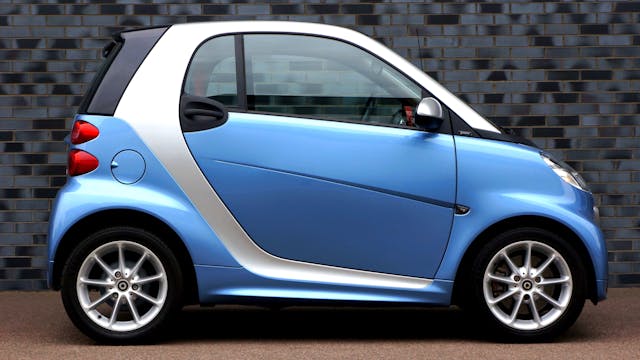
As Africa stands at the cusp of a green revolution, electric vehicles (EVs) are emerging as a powerful catalyst for change, not only in sustainable transportation but also in reshaping diplomatic ties across the continent.
With 12 African countries demonstrating high readiness for EV adoption and 24 showing significant impact potential, the stage is set for a transformative shift in regional cooperation and economic diplomacy (Mutiso, Tariq and Johansson, 2024). But how will this technological leap forward influence the geopolitical landscape of Africa?
The Rise of EV Diplomacy
The transition to electric mobility is more than just a technological shift; it’s a diplomatic opportunity. As countries across Africa embrace EVs at different rates, new avenues for cooperation and competition are emerging. Kenya, for instance, is becoming a hotbed for EV startups, with companies like BasiGo leading the charge in electrifying public transport (BasiGo, 2023). Meanwhile, Morocco is positioning itself as a potential global EV powerhouse, with aggressive auto and EV manufacturing initiatives.
“How can diplomacy bridge these gaps and ensure a unified approach to sustainable mobility?”
Case Study: South Africa’s Balancing Act
South Africa’s automotive industry stands at a pivotal crossroads as it embarks on an ambitious transition towards electric vehicle (EV) production. The recently published Electric Vehicle White Paper outlines a vision to shift from primarily manufacturing Internal Combustion Engine (ICE) vehicles to a dual platform that includes EVs by 2035 (Bulbulia, 2023). This transition, while necessary for South Africa to remain competitive in the global automotive market, presents a complex set of challenges that the country must navigate carefully.
The first major hurdle South Africa faces is energy security. As the country grapples with an ongoing power sector crisis, characterized by frequent load shedding and grid instability, the question arises: How can South Africa power its EV ambitions? The White Paper acknowledges this challenge, emphasizing that “the grid has to become greener” not only for climate change mitigation but also to realize the full value of the domestic EV market. This necessitates a rapid shift towards renewable energy sources, a transition that must occur in tandem with EV adoption to ensure sustainable growth in the sector.
The White Paper outlines several strategies to address these economic challenges, including increased investment funding, development of a regional electric battery value chain, and temporary reductions in import duties for vehicle batteries. However, the transition also poses challenges for regional relationships. South Africa’s automotive exports, primarily to the EU and UK, have been a key driver of its industry (EVBoosters, 2023). As these markets increasingly demand EVs, South Africa’s ability to meet this shift will be crucial for maintaining its export competitiveness. The answers to these questions will unfold in the coming years, as South Africa implements its ambitious EV transition plan.
The Ethiopian Gambit: Bold Moves and Diplomatic Ripples
Ethiopia’s January 2024 ban on non-electric vehicle imports marks a pioneering move in the global transition to electric mobility. This ambitious policy has positioned Ethiopia at the forefront of Africa’s EV adoption, sparking discussions about its potential impact on regional dynamics and the future of transportation across the continent (Africa, 2025).
The ban has created a new market for EVs and related technologies in Ethiopia, potentially attracting manufacturers and investors from neighboring countries. This shift could disrupt existing supply chains, prompting countries that previously exported used ICE vehicles to Ethiopia to reconsider their strategies. The need for extensive charging infrastructure may also catalyze cross-border collaborations, fostering regional cooperation in energy and transportation sectors (Roychowdhury, 2024).
Ethiopia’s bold move could accelerate EV adoption in neighboring countries through competitive pressure and shared learning experiences. As Ethiopia positions itself as a leader in e-mobility, other African nations may feel compelled to accelerate their own EV plans. The ban could also prompt discussions about harmonizing EV standards across the region, facilitating easier adoption for other countries (EV, 2024).
Africa’s Global Role in the EV Revolution: A Diplomatic Turning Point
Africa’s entry into the global electric vehicle (EV) market, projected to reach $25.40 billion by 2029, represents a transformative opportunity for the continent. The question is not whether Africa can participate but how it can lead. With vast reserves of critical minerals such as cobalt, lithium, and manganese—essential for EV batteries—Africa holds a strategic position in the global energy transition. But how will African nations leverage these resources to negotiate favorable terms in international trade? Could the creation of an “African EV Alliance” amplify the continent’s bargaining power in shaping global EV policies? (Statista, 2024)
The competition for Africa’s mineral wealth is intensifying as nations like China and Western powers vie for access. Yet, much of this wealth is exported without local processing, limiting Africa’s economic gains. To change this narrative, African countries must prioritize value addition through local battery manufacturing and EV assembly plants. Will Africa seize this moment to redefine its role in the global supply chain, or will it remain a supplier of raw materials in a rapidly evolving market?
The Africa Energy Indaba 2025: A Glimpse Into the Future
The upcoming Africa Energy Indaba 2025 and its EV Forum provide a critical platform for shaping Africa’s EV future. Leaders, policymakers, and industry stakeholders will gather to discuss battery technologies, energy storage solutions, and charging infrastructure development. What new alliances will emerge from these discussions? How will trade agreements be reshaped to foster cross-border collaboration? The forum offers a unique opportunity for African nations to align their strategies and present a unified vision for sustainable mobility (Africa.com, 2025).
As urbanization accelerates and transportation demands grow, Africa’s potential for EV adoption is unparalleled. Events like the Indaba are crucial for fostering dialogue and innovation that can drive the continent toward electrified transportation solutions.
A Call to Action: Africa’s Electrified Future
Africa stands at a crossroads in its journey toward sustainable mobility. Through leveraging its renewable energy resources, mineral wealth, and growing industrial capacity, the continent has the tools to lead its own EV revolution. However, success depends on collaboration—between nations, industries, and communities.
This is a clarion call to African leaders, innovators, and investors: The time to act is now. Let us not merely catch up with global trends but carve out a distinct path that prioritizes sustainability, inclusivity, and long-term prosperity. The EV revolution is more than an opportunity—it is Africa’s chance to redefine its place on the global stage. Will we rise to the occasion?
By: Eric Muhia
Author Image Attribution: Eric Muhia

Eric Muhia
Eric Muhia is a dynamic professional at the intersection of sustainable energy transitions and international cooperation, specializing in EV smart charging consultancy and energy sector advisory. With dual MSc degrees-one in International Business & Strategy from the University of Dundee and another in Diplomacy & International Security from the University of Strathclyde-Eric brings a distinctive blend of technical expertise, strategic insight, and diplomatic acumen to every project he undertakes. Driven by a commitment to the United Nations Sustainable Development Goals, Eric bridges technology, business strategy, and international diplomacy to deliver scalable solutions. A diplomacy enthusiast and advocate for sustainable development, Eric is eager to connect with forward-thinking professionals and organizations focused on sustainable energy, climate action, and global development. Together, he believes, it is possible to harness innovation and cooperation to build resilient, low-carbon communities worldwide-transforming the geopolitical and economic landscape of our net-zero future.
Reference list
Africa, E. (2025). Ethiopia to expand its electric vehicle (EV) charging infrastructure. [online] ESI-Africa.com. Available at: https://www.esi-africa.com/industry-sectors/future-energy/ethiopia-to-expand-its-electric-vehicle-ev-charging-infrastructure/ [Accessed 6 Mar. 2025].
Africa.com (2025). Africa Energy Indaba 2025 To Host 3rd Annual EV Forum – Showcasing The Future Of Electric Vehicles In Africa – Africa.com. [online] Africa.com. Available at: https://www.africa.com/africa-energy-indaba-2025-to-host-3rd-annual-ev-forum-showcasing-the-future-of-electric-vehicles-in-africa/ [Accessed 6 Mar. 2025].
BasiGo (2023). BasiGo. [online] BasiGo. Available at: https://www.basi-go.com/.
Bulbulia, T. (2023). South African auto sector to produce first EVs in 2026, says Patel at launch of key White Paper. [online] Engineering News. Available at: https://www.engineeringnews.co.za/article/patel-releases-long-awaited-ev-white-paper-final-green-hydrogen-commercialisation-strategy-2023-12-04 [Accessed 6 Mar. 2025].
EV (2024). Ethiopia’s EV boom as fuel ban sparks growth and innovation – CNBC Africa. [online] @CNBCAfrica. Available at: https://www.cnbcafrica.com/media/6366177878112/ethiopias-ev-boom-as-fuel-ban-sparks-growth-and-innovation/ [Accessed 6 Mar. 2025].
EVBoosters (2023). South Africa’s shift to EVs in automotive evolution. [online] EVBoosters. Available at: https://evboosters.com/ev-charging-news/south-africas-shift-to-evs-in-automotive-evolution/ [Accessed 6 Mar. 2025].
Mutiso, R., Tariq, H. and Johansson, D. (2024). Who in Africa Is Ready for EVs? – Energy for Growth Hub. [online] Energy for Growth Hub. Available at: https://energyforgrowth.org/article/who-in-africa-is-ready-for-evs/ [Accessed 6 Mar. 2025].
Roychowdhury, A. (2024). Africa’s ‘E’-volution and Ethiopia’s ban on fossil fuel vehicle import. [online] Down To Earth. Available at: https://www.downtoearth.org.in/air/africas-e-volution-and-ethiopias-ban-on-fossil-fuel-vehicle-import.
Statista (2024). Electric Vehicles – Africa | Statista Market Forecast. [online] Statista. Available at: https://www.statista.com/outlook/mmo/electric-vehicles/africa.
